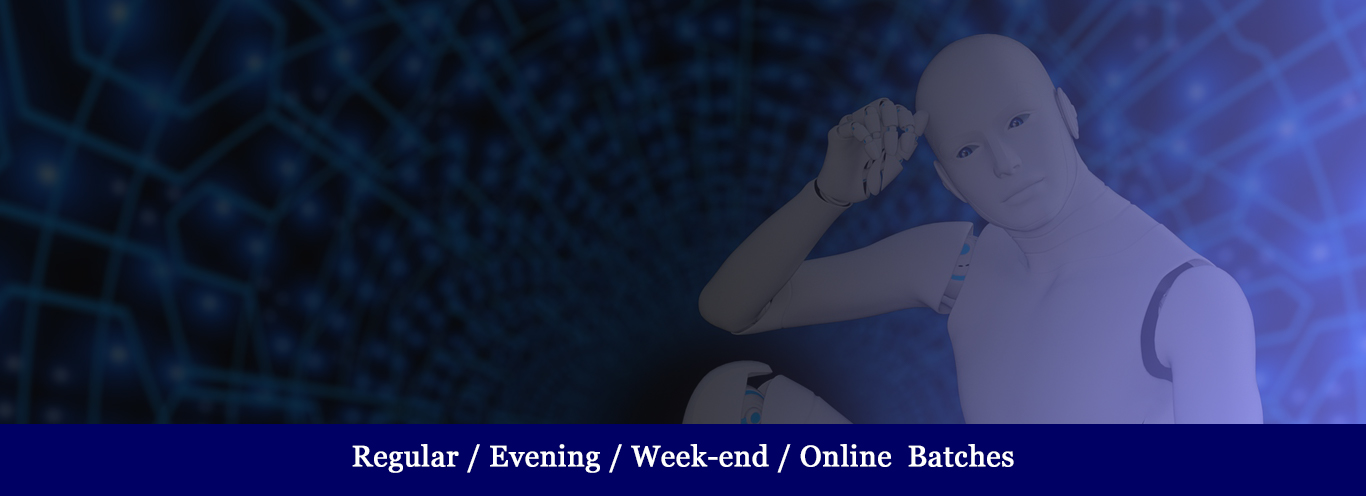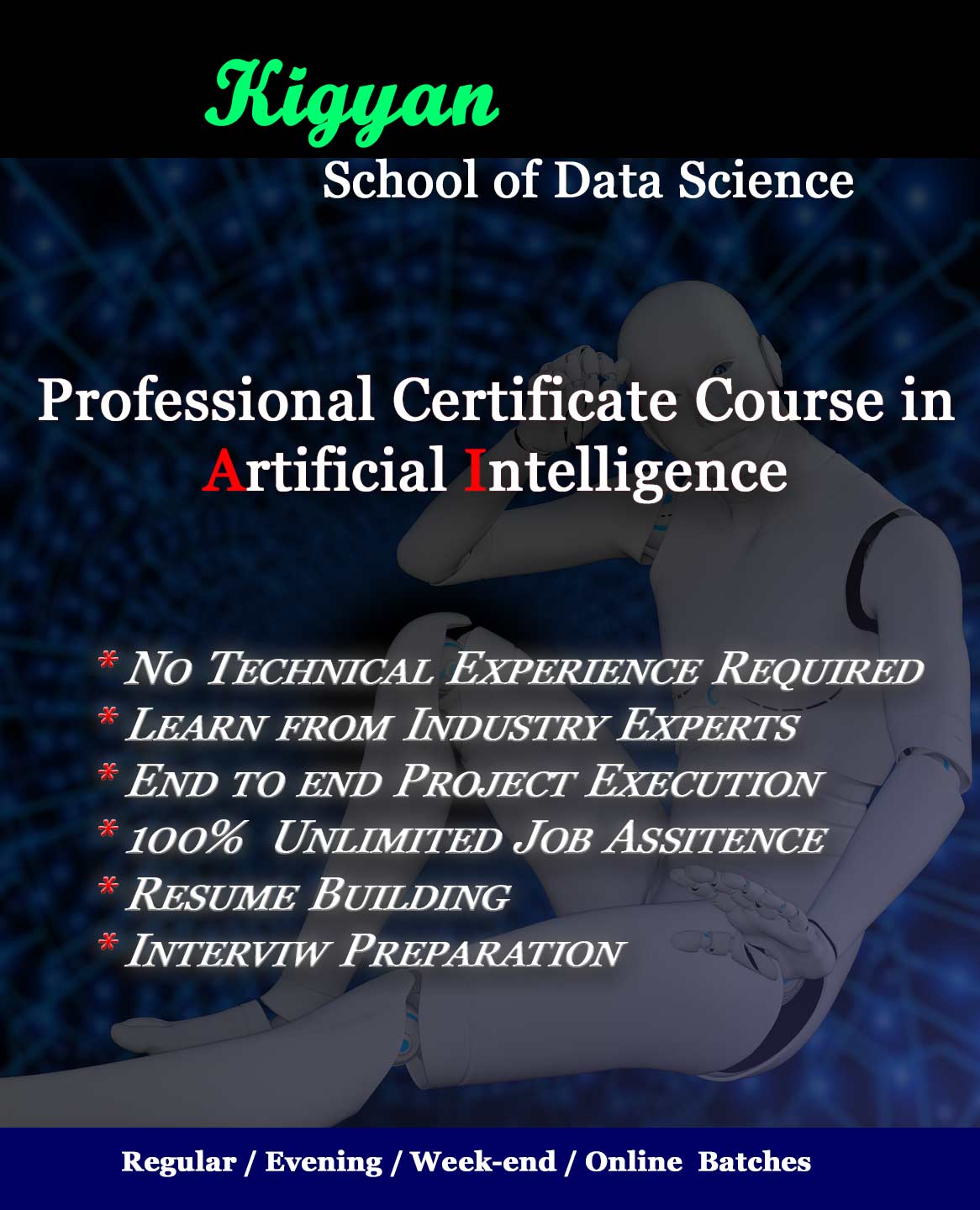

Kigyan introduces students to integrated blended learning, making them experts in Artificial Intelligence and Data Science. The program in consideration with current industry requirement for Artificial Intelligence and Data Science job roles.
Upon completion of this Certificate Program, you will receive the certificates from Kigyan in the Artificial Intelligence courses on the learning path. These certificates will testify to your skills as an expert in Artificial Intelligence.
This program is designed for the students or professionals who has a minimal or no knowledge of computer programming and want to build their career in the field of Artificial intelligence.
The program starts from introducing the Business analytics and refreshing your knowledge on mathematical and statistics concepts needed for Analytics and then data management using Microsoft Excel and SQL programming and also covering the basics of Database and data warehousing concepts, introduction to Big data management and basics of python programming.
This program will make you industry-ready with the business domain master data and business process training and to work on 20+ projects
The Certification program in Artificial Intelligence course will furnish you with in-depth knowledge of the various libraries and packages required to perform data analysis, data visualization, web scraping, machine learning and natural language processing using Python and Deep learning with TensorFlow and enable you to build artificial intelligence solutions.
What Skills you will Learn
This training program will enable you to:
There is a booming demand for skilled data scientists and artificial intelligence developers across all industries that make this course suited for participants at all levels of experience. We recommend this program particularly for the following professionals:
Prerequisites: There are no prerequisites for this program. But having knowledge on any one programming language or databases will be an added advantage
The Python basics course included with this program provides additional coding guidance.
Upon completion of this Program, you will have the skills required to help you land your dream job, including:
There are no prerequisites for learning this course. However, knowledge of any one programming language and SQL will be beneficial
Upon successful completion of the Artificial intelligence certification training, you will be awarded the course completion certificate from Kigyan
The tools you will need to attend training are:
We offer this training in the following modes:
Yes, we have group discount options for our training programs. Contact us using the form on the right of any page on the website or send am mail with your requirement and the student count to shailaja@kigyan.com. Our customer service representatives can provide more details.
Payments can be made using any of the following options. You will be emailed a receipt after the payment is made.